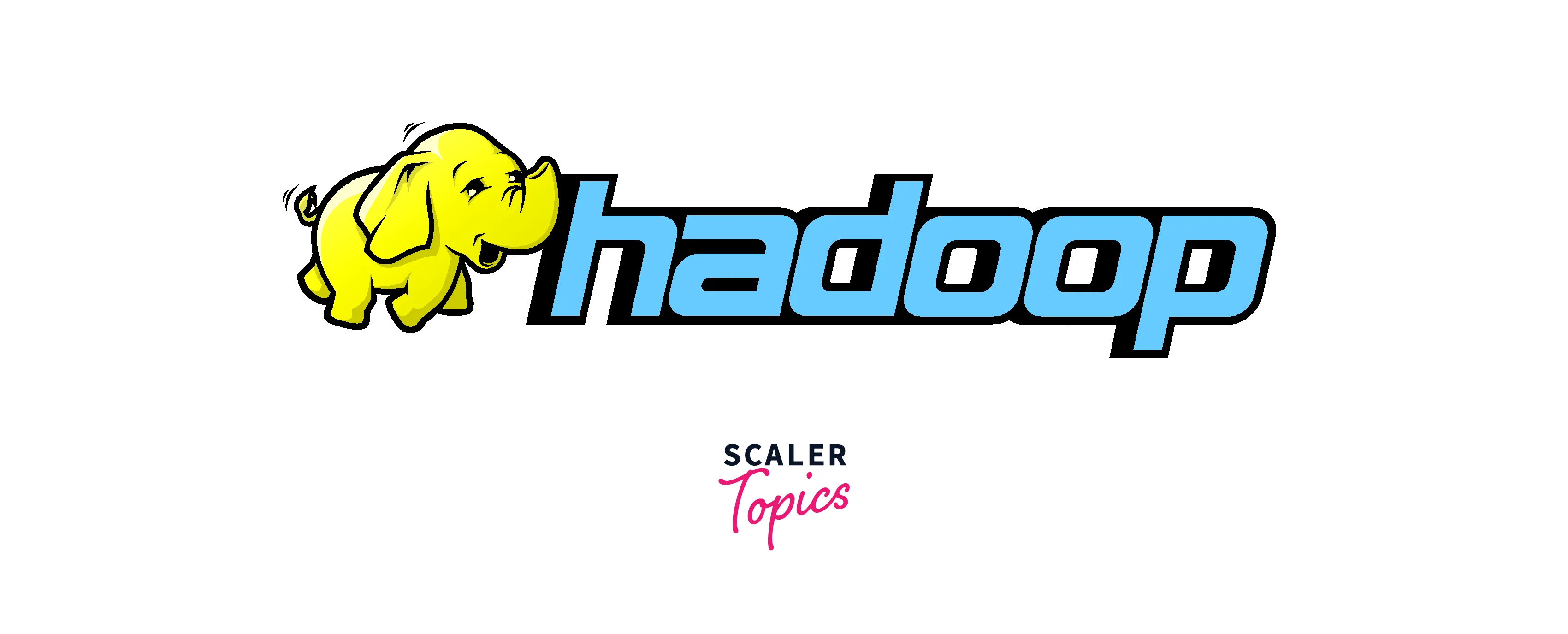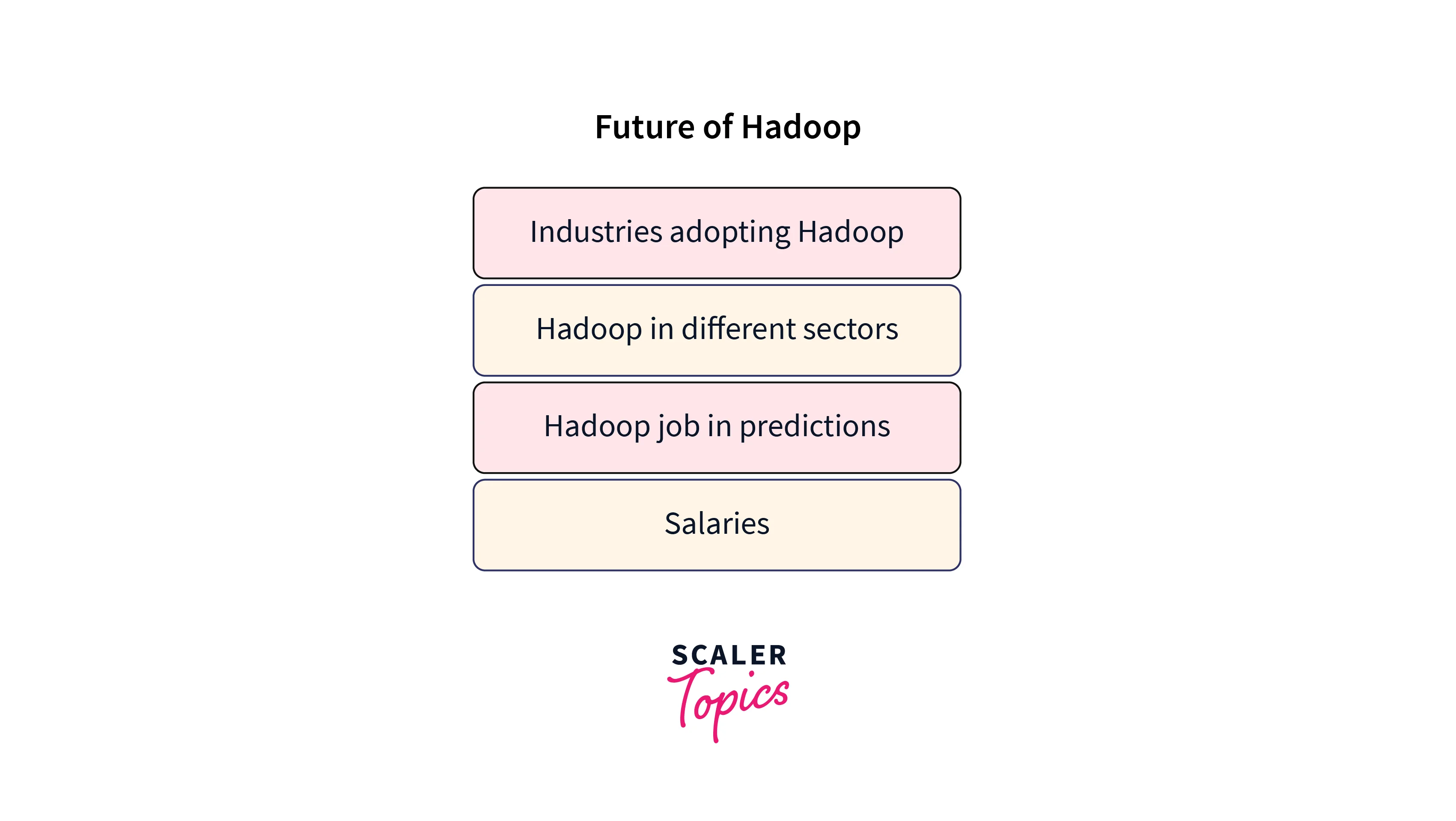How to Become a Hadoop Developer?
Becoming a Hadoop Developer is an interesting adventure into big data. Begin by building a solid foundation in programming languages like Java or Python. Dive into Hadoop's ecosystem, mastering HDFS, MapReduce, YARN, and data processing tools like Hive, Pig, and Spark. For hands-on experience, set up a Hadoop cluster on your home PC. Participate in open-source projects and display your abilities on sites such as GitHub.
What is Hadoop?
Hadoop, an open-source framework, is a digital behemoth designed for managing and analyzing vast amounts of data that overwhelm standard systems. Its core comprises the Hadoop Distributed File System (HDFS) for data distribution, ensuring redundancy, and fault tolerance; and MapReduce, a task-dividing programming approach for efficient data processing across a cluster. With scalability and orchestration, Hadoop empowers organizations to gain insights, make informed decisions, and innovate in today's data-rich landscape.

To learn more about Hadoop, click here
What does a Hadoop Developer do?
A Hadoop developer plays a crucial role in managing and gaining insights from big data. They design, create, and manage Hadoop systems, optimizing data pipelines using languages like Java and Python. They create MapReduce jobs for parallel processing, ensuring data security and collaborating with others to enhance performance. Essentially, they enable organizations to extract valuable insights from large datasets, making informed decisions in a data-driven world.
What Skills does a Good Hadoop Developer Need?
Essential skills of a competent Hadoop developer are:
- Hadoop environment Proficiency: For all the Hadoop developers, a thorough understanding of the Hadoop environment is required including the fundamental components such as HDFS, MapReduce, YARN, and associated tools like Hive, Pig, and HBase.
- Programming Languages: Knowledge of programming languages such as Java, Scala, or Python is essential. These programming languages fuel Hadoop's features and allow you to create sophisticated applications.
- Cluster Management: It is essential to be skilled in setting up, managing, and monitoring Hadoop clusters. This entails guaranteeing scalability, dependability, and peak performance.
- Data Ingestion: Ability to efficiently ingest various data from several sources into Hadoop clusters. This covers using technologies such as Flume, Sqoop, and Kafka.
- Data Processing: Knowledge of building and implementing efficient MapReduce tasks, Spark applications, or other processing frameworks. This ability provides accurate data transformation and analysis.
What are the Responsibilities of a Hadoop Developer?
Here's a summary of critical duties of a hadoop developer:
- Coding Knowledge: Knowledge of programming languages such as Java and Python is essential. Developers write solid code to ensure data quality and integrity throughout extracting, transforming, and loading (ETL) activities.
- Cluster Management: These specialists configure hardware, networking, and software factors to both set up and operate Hadoop clusters, ensuring optimal performance in terms of scalability and fault tolerance
- Performance Tuning: Maximizing Hadoop cluster performance is crucial, involving developers in fine-tuning setups, optimizing query speed, and integrating caching techniques for lightning-fast data processing.
- Continuous Learning: In the rapidly changing technological landscape, Hadoop engineers stay updated on advancements, incorporating new tools and approaches to broaden their data processing capabilities.
- Collaboration: Communication abilities are essential. Developers work with data scientists, analysts, and other teams to understand and adapt solutions to their data needs.
- Documentation: Comprehensive documentation is essential for knowledge sharing and future reference. Developers rigorously record codes, setups, and processes for the team's benefit.
What Kind of Compensation does a Hadoop Developer Get?
A Hadoop developer's income is determined by various factors, including experience, abilities, location, and the complexity of the projects they work on.
A junior Hadoop engineer with less experience may expect to earn between $70,000 and $90,000 per year on average. Mid-level developers with a few years of hands-on expertise may earn between $90,000 and $120,000 annually. On the other hand, Senior Hadoop developers may make far over $130,000 per year as their talents improve and experience develops.
In addition to base pay, Hadoop engineers often enjoy added perks like bonuses, stocks, and health coverage. Compensation varies by location; tech hubs like Silicon Valley offer higher pay due to living costs, while other areas provide competitive packages with lower expenses.
How to Become a Hadoop Developer?
Are you interested in big data and want to learn about Hadoop development? Becoming a Hadoop developer brings new prospects in handling and analyzing large datasets.
Road Map to Get You Started
- Solidify Your Foundation: Begin by learning the fundamentals of programming languages such as Java or Python. A solid understanding of these languages will be the foundation for Hadoop development.
- Grasp Hadoop Ecosystem: Learn about Hadoop ecosystem components, including HDFS (Hadoop Distributed File System) for storage and MapReduce for data processing. Recognize their responsibilities and functions.
- Understand the Tools: Use popular Hadoop tools such as Hive and Pig for data querying and analysis. Learn about HBase for NoSQL database administration and YARN for resource management.
- Hone Your Skills: Practice MapReduce programming to process data in a distributed fashion. Experiment with actual datasets to obtain practical experience.
- Cluster Configuration: Create a Hadoop cluster with systems like Cloudera or Hortonworks. This hands-on experience with cluster setup is priceless.
- Data Loading and Management: Discover how to load data into HDFS while providing fault tolerance and replication. Understand how to store and retrieve data efficiently.
- Data Processing: Explore MapReduce, learn about its phases and optimization methodologies. Examine topics such as data partitioning and combiners as well as advanced concepts like Apache Spark for quicker data processing and Apache Kafka for real-time data streaming.
- Debugging and Optimization: Learn techniques to troubleshoot and optimize Hadoop jobs. Debugging skills will set you apart as a talented developer.
- Build Projects: Demonstrate your abilities by creating practical projects. This might include anything from analyzing datasets to building data pipelines. It shows potential employers your knowledge.
What is the Future of Hadoop?
Hadoop's future is experiencing a change that promises to improve its capabilities and usefulness.
The future of Hadoop revolves around three main predictions:

- Cloud Integration: Cloud platforms offer scalability, flexibility, and managed services that enhance Hadoop's performance. Integration with cloud services enables users to leverage Hadoop's capabilities without dealing with complex infrastructure management.
- Containerization and Orchestration: Technologies like Kubernetes are reshaping how Hadoop is deployed. By encapsulating Hadoop components in containers, organizations can achieve better resource efficiency, mobility, and simplified management.
- Diversification and Advanced Processing: Hadoop's future embraces diversification. Frameworks like Apache Spark and Flink are seamlessly integrating real-time data processing, machine learning, and AI capabilities into Hadoop environments. For those skilled in Hadoop, the world of data engineering offers significant benefits. Hadoop expertise is highly relevant as data engineers design, develop, and maintain data pipelines that power businesses' data-driven decisions. Proficiency in Hadoop ecosystem components like HDFS, MapReduce, and Spark equips professionals to efficiently manage and process large datasets. Additionally, understanding the cloud integration and containerization trends allows data engineers to create scalable and agile data solutions, meeting modern industry demands. By staying updated with diversification trends, Hadoop-trained individuals can harness advanced processing capabilities, enabling them to craft intricate data workflows that drive innovative applications in fields such as machine learning and real-time analytics.
What is the Best Available Hadoop Training?
Mastering Hadoop is pivotal in navigating the expansive realm of Big Data and unleashing its transformative potential across industries. Here's why Hadoop training is crucial:
- Data Revolution: Hadoop sits at the heart of the data revolution, enabling organizations to harness and analyze massive volumes of data for valuable insights.
- Industry Transformation: Many industries, from finance to healthcare, rely on data-driven decisions. Hadoop skills make you an asset in driving innovation and efficiency.
- Career Opportunities: Proficiency in Hadoop opens doors to various job roles like Hadoop Developer, Data Engineer, or Big Data Analyst, all in high demand.
- Intricate Ecosystem: Hadoop's ecosystem comprises various components, and training provides an in-depth understanding of these, ensuring you're well-equipped to handle complex projects.
- Integration with Technologies: Hadoop is often used in conjunction with technologies like Spark, Hive, and Pig. Training ensures you comprehend how they synergize to accomplish diverse tasks.
About Scaler's Hadoop Module
If you're seeking a comprehensive guide to becoming a proficient Hadoop developer, Scaler's Hadoop module offers a structured path to mastery. The module is designed to provide a clear and effective learning experience. Please click here to check out our module.
Instructors with industry expertise add immense value, offering practical insights and guidance. It's beneficial if the training program prepares you for Hadoop certification exams, validating your skills in the job market.
Remember, the best Hadoop training adapts to the ever-evolving landscape of Big Data technologies. Prioritize courses that stay current with the latest advancements and trends. Ultimately, the best available Hadoop training empowers you with a deep understanding of Hadoop's architecture, components, and applications, setting you on a path to becoming a proficient Big Data practitioner.
Conclusion
- Hadoop is an open-source framework for distributed storage and processing of large datasets across computer clusters, providing the foundation for big data analytics and applications.
- To become a Hadoop developer, first master the foundations of Hadoop, such as its design, components, and the MapReduce programming methodology.
- It is crucial to acquire proficiency in programming languages like Java, Python, and Scala to seamlessly work within the Hadoop ecosystem.
- In terms of certifications, obtaining recognized credentials such as the Cloudera Certified Hadoop Developer or Hortonworks Data Platform (HDP) Certified Developer can greatly validate your expertise.
- Immerse yourself thoroughly in the Hadoop ecosystem by gaining practical experience; establish a Hadoop cluster on your PC or leverage cloud services to explore genuine scenarios and datasets.
- You may stay up to speed on the newest trends, tools, and breakthroughs through online resources, courses, and groups.
Related Articles



